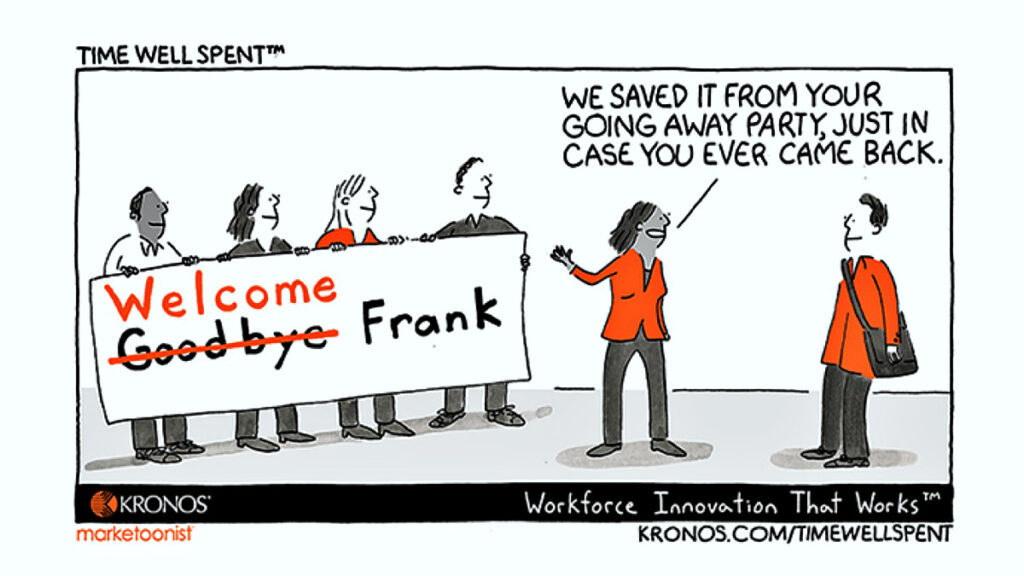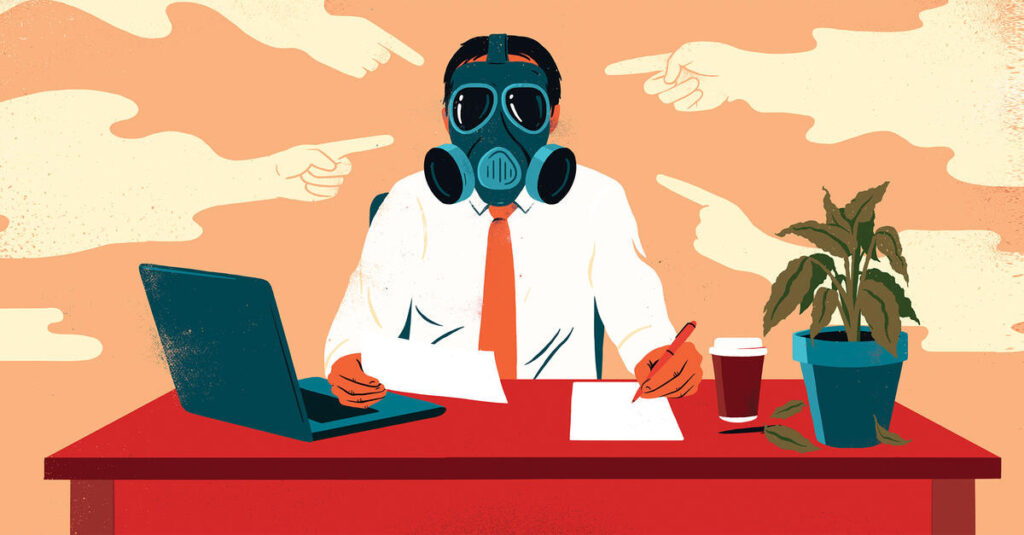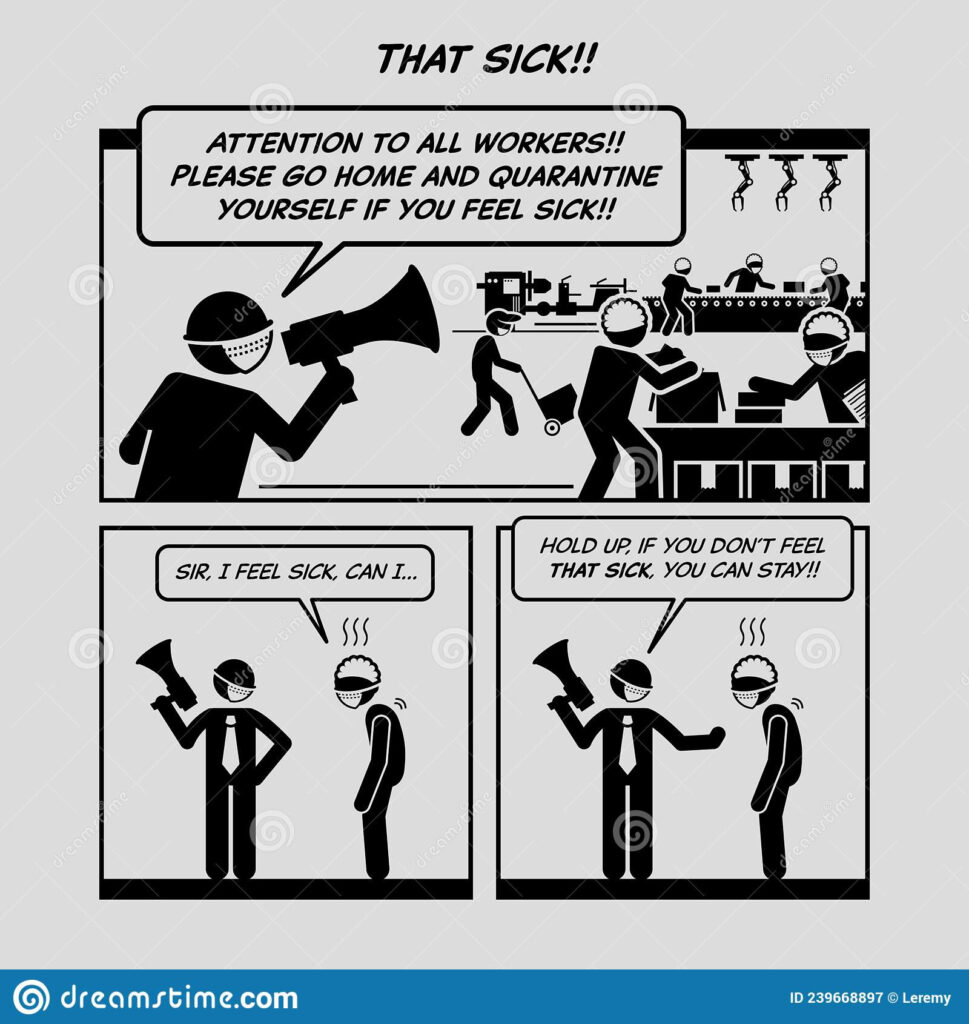It is time to leave when you find yourself browsing job portals every lunch hour and during your annual leave.
No, that is not the real answer. Rather, the above signals that you need to get off that job portal, find a quiet corner, and really consider whether it is time to bid farewell to your current workplace.
Before we start fantasizing about our last day at work however, it is important to determine the true reasons for wanting to leave and whether it is truly the right decision to resign. I have seen an ex-colleague boomeranging back to our former employer, only to leave once again during her probation period. I never knew why, though. Nobody (at least not that I know of) leaves a workplace with the plan of going back there in future.
Besides that, there is no such thing as a perfect workplace. Hence, when our new workplace does seem to hit every sweet spot – we will first need to manage our own expectations and determine the non-negotiables. Leaving need not always be the first resort.
That being said, there are 2 overarching reasons why someone would resign from his/her existing role:
- “There are better opportunities out there” – i.e. the “pull” factor.
- “This place sucks” – i.e. the “push” factor.
Perhaps you are always seeking new opportunities (a.k.a. better offers) and gets the kick from exploring roles beyond your area of expertise. Or maybe you are the type that only jumps ship if the current ship you are serving is beginning to sink. It is fine either way – only don’t wait until the ship has sunk before considering leaving that ship.
For me to make the decision to leave a current job and seek another, I need to have both “pull” and “push factors. One lousy manager is not enough to push me out if the companies I am aiming for are not hiring. A higher salary offer by another firm could not tempt me if my career prospects in the current firm is equally good.
Let’s talk about the “push” factors first.
1. When the office is getting toxic
There are two ways to interpret this: (1) your office has a toxic substance leak every day, or (2) you face a toxic office culture every day. I am referring to the latter.
As I mentioned earlier, there is no such thing as a perfect workplace – and no such thing as a perfect office culture. Every company has its bad apples, and one (or two, or even five) rotten apples do not necessarily mean the company is a rotten tree. My colleagues and I deal with a, uh, less-than-perfect superior every day, but nobody will argue that the company we work for is horrible as a whole.
In my view, whether we interpret our workplace as toxic or not depends on what our stress triggers are. I do not mind gossips (so long as I am not forced to contribute to them) but I do hate bosses who throw their subordinates under the bus. What about you?
Other signs of a toxic workplace, which may necessitate having an exit plan, are as follows:
- Poor communication all around.
This can include receiving work calls after work, unclear instructions (even a typo can throw off the meaning of a simple instruction), as well as not reading emails properly when all the information is already present.
- Overtime reigns supreme.
If you have ever received judgey remarks for leaving office on time, you are in a culture which believes that more hours = better performance. Don’t be fooled – efficiency is always better, no?
- A work week feels like a Netflix series
If you decide to join a clique for lunch regularly, be careful. You might find yourself growing a us-and-them mentality and believing misunderstandings about people outside the clique.
- Bad leadership on a personal and systemic level
A decent boss does not distance himself from his subordinates when things go wrong, nor does he expect you to sell your soul to your job. One bad boss alone may not necessarily toxify the entire workplace, but several bad bosses will make everyone’s lives difficult in the office.
2. When your work starts to damage your physical and mental health
We are not made for working 24 hours a day, 7 days a week. There is a reason why Sunday is a designated rest day. In the Bible, God rested after completing his work of creation.
It is okay to rest from our work. Your body and mind will thank you for it. If your job does not allow it no matter how you try to restructure your role and workload, consider making an exit.
During the Movement Control Order 1.0 in Malaysia, there was this overwhelming pressure to work, work, work despite being unable to do much and the honestly lousy work-from-home tools we had to make do with. I soon experienced dizzy spells and later on, burnout. My condition did not improve even after we are allowed back into our office. After months of hearing the “please resign” chant from my spirit, I left the firm – giving up a promotion opportunity in the process.
A ex-colleague, with whom I still keep in touch this day, had high fever due to overwork and her doctor had to prescribe rest to resolve the issue.
Even if you do not fall sick due to work-related issues, your mental health may be affected without you knowing it. If you have stopped smiling at work, are irritable all the time, have trouble falling asleep on work nights, or lose track of your to-dos and commitments – are you sure you want to remain in your job?
3. When you are unable to do your work effectively and efficiently due to management issues and outdated tools
Sometimes we want to do a good job and make positive changes in our workplace, but our work is hampered by red tape, outdated tools/equipment and the ol’ “we have always done it this way” attitude.
I have once resigned from a position due to this issue. The pandemic and the ensuing Movement Control Orders were difficult times as we tried to keep up with our workload amidst an outdated infrastructure that was not ready for work-from-home situations. Although the management did try to upgrade the infrastructure later on, it was rather too late for some of us.
If you are in the position to influence the management to streamline operations and/or upgrade your tools to improve the way you work – by all means, use your influence to make the changes. But if your management disregards staff’s ideas and is slow to implement improvements – and nothing you do/say makes a difference – are you sure you want to wait it out?
Depending on individual circumstances, any of the “push” factors may be severe enough that you need not consider any other reasons for resigning from your job. However, if the “push” factors are still within your endurance level, yet your gut keeps telling you to move one, perhaps the “pull” factors next week may help you to make a decision.



Be First to Comment